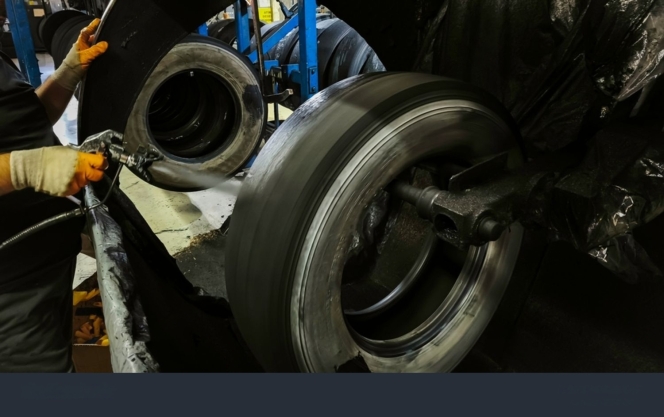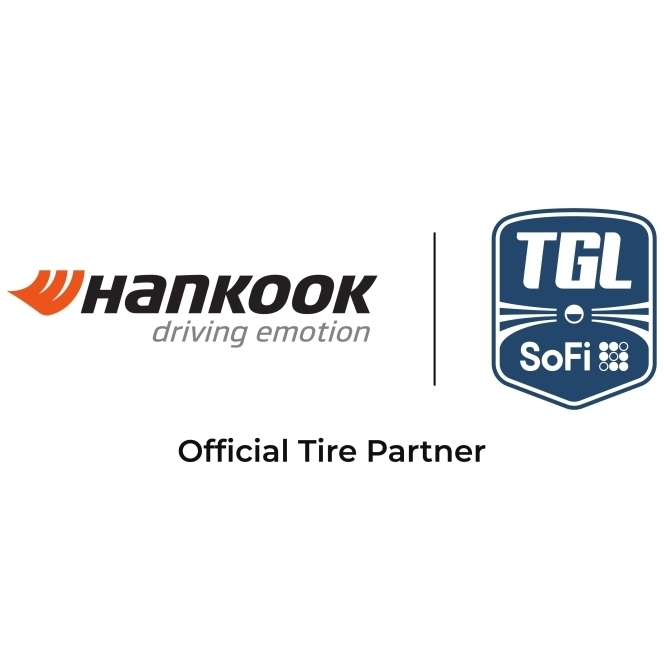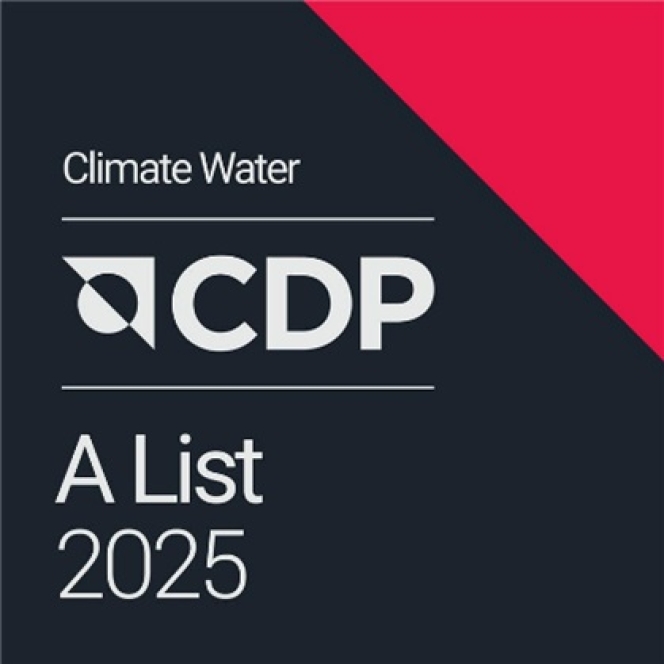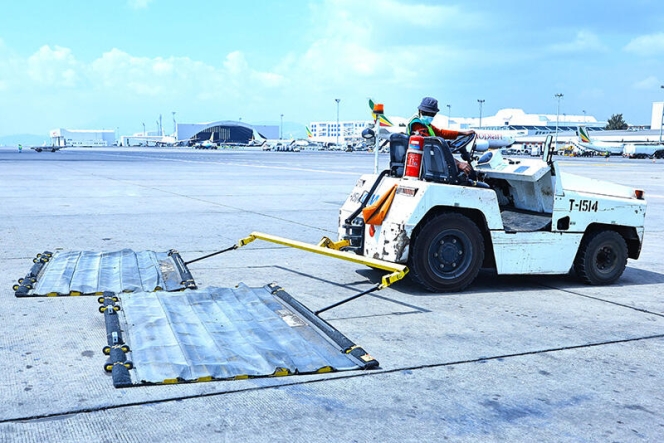
Hankook’s Collaborative Effort To Help Lessen Tyre Waste Generation
In an effort to make the world sustainable, Hankook Tire has collaborated with shoe brand YASE to launch eco-friendly shoes made of recycled tyres.Together, they have got on board the ‘Zero – Leave Nothing Behind’ project which aims to upcycle ELTs to make sustainable shoe products.
 Hankook Tire has always been at the forefront of sustainable practices with having set goals such as achieving 100 percent of sustainable raw material use by 2050 and reducing greenhouse gas emissions by 50 percent compared to that of 2018. These initiatives also extend to R&D where the tyre maker has minimised the rolling resistance of its tyres to improve the fuel efficiency of vehicles and ultimately reduce greenhouse gas emissions. The company also established an ESG committee to further strengthen its sustainability management efforts.
Hankook Tire has always been at the forefront of sustainable practices with having set goals such as achieving 100 percent of sustainable raw material use by 2050 and reducing greenhouse gas emissions by 50 percent compared to that of 2018. These initiatives also extend to R&D where the tyre maker has minimised the rolling resistance of its tyres to improve the fuel efficiency of vehicles and ultimately reduce greenhouse gas emissions. The company also established an ESG committee to further strengthen its sustainability management efforts.
Jimmy Kwon, Vice President of Hankook Tire’s Brand Lab, talks to Rajni Jose from Tyre Trends about this collaborative effort.
Q) What are the purpose and goals associated with this collaboration?
Jimmy Kwon: Hankook Tire and YASE embarked on the ‘Zero – Leave Nothing Behind’ project with a commitment to sustainable materials and environmental protection. As sustainability is a core value and key agenda for us, we have taken the topic of tyre recycling as one of the top agendas each year. We are glad to make good use of recycled tyres by turning them into hard-wearing and robust shoes in collaboration with YASE. We also believe this collaboration will offer the MZ generation, who have not had an opportunity to use tyres yet, a chance to experience Hankook Tire since a pair of shoes is a necessity that people use on a daily basis.
Q) What role does Hankook play in this collaboration? What are the processes involved in the upcycling of used tyres into shoes?
Jimmy Kwon: Hankook Tire will collect discarded tyres and extract rubber from them to pulverise rubber into a powder so that it can be processed into the outsole. Regarding the processes, upcycling itself benefits the environment as it minimises the volume of discarded materials and waste dumped into the landfills. It also reduces the need for production using new or raw materials, which leads to a reduction in air pollution, water pollution and greenhouse gas emissions.

Q) Is the company looking to produce products other than shoes?
Jimmy Kwon: Currently, Hankook Tire is focusing mainly on footwear in terms of collaboration items as both tyres and shoes share common traits of playing a crucial role in mobility and touching the ground on a daily basis. They also protect people from possible dangers on the road with durability and stability.
Q) What are the other materials used to make these shoes?
Jimmy Kwon: The upper part of the shoes is made of synthetic vegan leather, whereas the insole is made of OrthoLite and natural latex.
Q) By upcycling used tyres, how much carbon emissions do we save?
Jimmy Kwon: For this collaboration, we have recycled 50 used tyres to manufacture 2,000 pairs of shoes in total. According to the Korea National Institute of Forest Science, 2.8 tonnes of carbon dioxide emissions is reduced by recycling 50 used tyres which weigh approximately 1.5 tonnes. This is equivalent to planting 425 pine trees. Likewise, around 1.9 kg of carbon dioxide emissions is reduced per kg of tyres recycled. This is not a small amount as a 20-year-old tree consumes 6.7 kg of carbon dioxide emission.
Q) Does the company have a take-back policy? If not, how can the shoes be disposed of sustainably after use?
Jimmy Kwon: We do not have a related policy so far, but our decision to embark on the project of launching upcycling footwear displays our deep sense of care and commitment towards sustainability and environmental protection. It is thrilling that we are giving consumers an option to choose eco-friendly footwear. Shoes made of our old tyres will not only make a positive social impact but will also be hard-wearing and robust as our tyres are developed with high-quality materials and cutting-edge technologies.

Q) Currently, other brands offering shoes made from upcycled used tyres have priced their products higher than regular shoes. How does the company plan to price the products so that customers prefer this sustainable alternative over regular shoes?
Jimmy Kwon: The collaboration items are not specifically priced high compared to regular shoes sold by YASE. For example, a pair of Hankook Tire x YASE Chelsea boots are priced at KRW 102,000 (USD 86) while a pair of existing 506 5CM Chelsea boots are KRW 98,000 (USD 83). It is 4 percent more expensive, but the prices are different only because their designs are different. Hankook Tire is trying to provide customers with excellent quality products at a reasonable price whether they be tyres or shoes.
Q) What are the marketing strategies adopted to attract customers?
Jimmy Kwon: Not only the shoes themselves but the packaging is designed with sustainability initiative as well. Shoeboxes, tags and pamphlets are made of 100 percent sugarcane material. Hankook Tire expects this will resonate with customers who are early adopters and are conscious about the environment. In addition, we have chosen an online fashion retailer that is popular among the MZ generation as a sales channel in Korea since we have found that this generation is especially environment-conscious and keen to making green purchase decisions.
Q) Where will these be produced?
Jimmy Kwon: These eco-friendly shoes are produced in Korea where the YASE factory is located.
Q) Is the company looking into exports?
Jimmy Kwon: Although we are not considering shipping overseas or exports at the moment, we would like to proceed in the future when there is an opportunity.
Q) What are the further expansion plans of the range?
Jimmy Kwon: Currently, we have unveiled five products through collaboration: four dress shoes and one comfort insole. We plan to continue collaboration with YASE to add special edition running shoes in October.
Q) What future do you see for upcycled used tyre products in the fashion industry?
Jimmy Kwon: Consumers are getting more and more conscious of the damaging effects of wastes, which explains why upcycling is becoming increasingly popular in the fashion industry. A tyre is a good resource for upcycling since tyres, especially the ones developed with Hankook’s high-quality materials and cutting-edge technologies, are durable and robust. We believe it’s a kind of collaboration that leads to mutually inspired progressive innovation for both industries and that there can be many opportunities forward. It’s a great way to widen customers’ eco-friendly options and to give old tyres a second life.(TT)
- INDIAN TYRE INDUSTRY
- TYRE RETREADING
- BIS STANDARDS
- IS 15704
- ECE R109
- CIRCULAR ECONOMY
- MSME CHALLENGES
- AUTOMOTIVE REGULATION
- CARBON REDUCTION
- FREIGHT
- LOGISTICS
Retreading Hangs In Balance Over Regulatory Conundrum
- By Gaurav Nandi
- December 30, 2025

A population of over 1.4 billion people catapulting into the world’s third largest automobile market with four million trucks plying across a road network of 6.3 million kilometres supported by a USD 13.4 billion tyre market and a mining sector contributing around 2–2.5 percent of the country’s GDP demonstrate the strength of India’s automobile, freight and tyre sectors.
The story doesn’t end there as the Central Government adopts a strategic approach on reducing carbon emissions across these verticals, especially automobile and tyres, with targets such as the Net Zero Carbon Emissions by 2070, battery electric vehicles target by 2030, zero-emission truck corridors, Extended Producer Responsibility for the tyre sector; the list just goes on.
Amidst all such statistics and targets, a silent spectator remains the old and varied sector of tyre retreading. In a recent news story reported by Tyre Trends, the Indian Tyre Technical Advisory Committee (ITTAC) had made a proposal to Tyre Retreading Education Association (TREA) for mandating certain standards that will improve the quality of retreads. ITTAC has made recommendations to the BIS committee. TREA is part of the same committee. ITTAC and TREA are recommending different standards.
These standards included BIS retread standards, namely IS 15725, IS 15753, IS 15524 and IS 9168. The ITTAC had partially aligned Indian requirements with ECE R109, the European regulatory benchmark.
In a reply to the proposal, which was accessed by Tyre Trends, TREA urged the Indian Tyre Technical Advisory Committee to seek a deferment or non-applicability of BIS standard IS 15704:2018 for retreaded commercial vehicle tyres, warning that mandatory enforcement could cripple the sector.
In the letter, TREA argued that IS 15704:2018 is largely modelled on new tyre manufacturing norms and is technically unsuitable for retreading, which is a restoration and recycling process.
The standard mandates advanced laboratory tests such as spectrometer-based rubber analysis, endurance testing and compound uniformity checks, requirements that most retreading units, particularly small and medium enterprises, are not equipped to meet
The association highlighted that even large retreaders lack the infrastructure and skilled manpower needed for BIS-grade testing, while the sheer number of retreading units would make inspections and certifications operationally unmanageable for regulators.
TREA warned that compliance costs linked to machinery upgrades, audits and quality control could force 70–80 percent of units to shut down, leading to job losses, higher fleet operating costs and adverse environmental outcomes due to reduced recycling
Instead, TREA proposed that BIS prioritise retreading-specific standards such as IS 13531 and IS 15524, which focus on materials, process control, safety and quality consistency.
The body has also called for a phased transition roadmap, MSME support and industry training before any stricter norms are enforced, stressing that abrupt implementation would undermine the sector’s role in India’s circular economy.
The conundrum
India has a total of 36 administrative divisions comprising 28 states and 8 union territories. The tyre retreading sector has been continuously supporting circularity goals since the early 1970s across the world’s largest economy without getting mainstream recognition.
Even after five decades in service, the industry battles different bottlenecks including fragmentation, manpower shortage, tax pressures brought about by the recent GST revisions and now the implementation of such standards, just to name a few.
The sole practice that can simultaneously reduce carbon emissions from tyres and extend tyre life is assumed the nemesis of an ‘infamous and dangerous practice’ in some states of the country.
However, the industry has been drawing its techniques and quality parameters from the world’s oldest retreading economy, Europe.
“Big retreaders in India already have the necessary processes in place that conform to IS 15524 standards. However, as the standard is not yet mandated, we have voiced support for it because it is process-oriented and outlines how retreading should be carried out, including buffing and building procedures,” said TREA Chairman Karun Sanghi.
He added, “This standard focuses on how the work is done rather than imposing product-level testing that cannot be practically implemented. The current debate on IS 15704 stems from it being fundamentally incompatible. The standard includes requirements such as sidewall marking and destructive testing of retreaded tyres, which are impractical in a retreading environment where each tyre differs in brand, size, application and usage history,” he added.
Destructive testing, he argued, assumes uniform batch sizes. In retreading, where every casing is unique, testing even a single tyre would mean destroying finished products without yielding representative results. Applying such a framework would effectively require the destruction of every tyre in a batch, making compliance unviable.
“We have submitted our response to ITTAC and are awaiting feedback from the committee. We remain open to continued dialogue and will engage further once the committee responds to our submission,” said Sanghi.
According to him, a typical retreader processes about 300 tyres a month across multiple brands including MRF, JK Tyre, Apollo and Michelin and applications ranging from buses and trucks to mining vehicles. These casings vary widely in load cycles, operating conditions and duty patterns, often across several models from the same manufacturer.
The committee has cited European standard ECE R109, but Sanghi points to structural differences: “Europe is a global retreading hub where tyre manufacturers such as Michelin and Bridgestone dominate operations, collect their own tyres, retread them and return them to fleets, making batch-based destructive testing relevant. A similar model exists in US, where large tyre companies lead retreading and largely self-regulate without a single overarching standard. The Indian scenario is different, especially with a fragmented market.”
He stressed that the industry is not opposed to standards but to those that cannot be practically applied, warning that adopting European manufacturing-oriented norms without accounting for India’s market structure and operating realities would be counter-productive.
The debate is no longer about whether standards are needed but whether they are fit for purpose. Without accounting for India’s fragmented retreading ecosystem, enforcing impractical norms could dismantle a circular industry in the name of compliance.
TGL Season 2 Kicks Off With Hankook As Founding And Official Tire Partner
- By TT News
- December 29, 2025

The second season of TGL Presented by SoFi, where Hankook Tire serves as the Founding and Official Tire Partner, commenced on 28 December 2025. This innovative league, a venture of TMRW Sports with backing from icons like Tiger Woods and Rory McIlroy, represents a strategic alignment for Hankook, uniting two entities driven by technological advancement. The partnership provides a global platform to reinforce Hankook's premium brand positioning across North America and worldwide through extensive visibility during broadcasts and at the state-of-the-art SoFi Center in Florida.
This unique venue embodies the league's fusion of sport and technology, featuring a massive simulator with a dedicated ScreenZone and a dynamic GreenZone. This area, equipped with a turntable and over 600 actuators, meticulously replicates real-world golf conditions indoors, creating an immersive arena experience. The competition itself is fast-paced and engaging, with teams of PGA TOUR players competing in Triples and Singles sessions over 15 holes. Innovative elements like the point-doubling ‘Hammer’, real-time strategy via ‘Hot Mic’ and a Shot Clock ensure a dynamic spectacle for fans.
The season opener presented a compelling narrative as a rematch of the inaugural finals, pitting the undefeated Atlanta Drive GC, featuring Justin Thomas and Patrick Cantlay, against a determined New York Golf Club squad led by Matt Fitzpatrick and Xander Schauffele. This match set the tone for an intensive season running through March, where six teams and 24 top golfers will compete. For Hankook, this partnership is more than signage; it is an active engagement with a global community, delivering a distinctive brand experience that bridges cutting-edge mobility and sport for enthusiasts everywhere.
Dunlop Secures CDP ‘A List’ Recognition For Climate Change And Water Security
- By TT News
- December 29, 2025

Dunlop (company name: Sumitomo Rubber Industries, Ltd.) has made its way to the annual A-List of CDP for climate change and water security. This premier designation, awarded for the first time to the company in the 2025 evaluation, recognises world-leading performance in transparency, risk management and environmental action. CDP’s annual assessment is a key benchmark for corporate sustainability across climate, water and forests.
This achievement stems from the Group’s integrated approach to material issues outlined in its corporate philosophy. It treats the interconnected challenges of climate change, biodiversity and the circular economy holistically, advancing concrete initiatives under its long-term ‘Driving Our Future’ sustainability policy.
On climate, the Group’s science-based emission reduction targets for 2030 are validated by the Science Based Targets initiative. Operational efforts include pioneering green hydrogen production at its Shirakawa Factory and developing tyres made entirely from sustainable materials by 2050. The company also works to reduce emissions across its supply chain, lowers tyre rolling resistance to improve vehicle fuel economy and extends product life through retreading.
For water security, the strategy is driven by localised risk assessments at global production sites. In seven facilities identified as high-risk, the goal is to achieve 100 percent wastewater recycling by 2050. Progress is already evident, with the company’s Thailand factory reaching full wastewater recycling in 2024.
These coordinated actions on multiple environmental fronts formed the basis for the Group’s simultaneous top-tier recognition in both critical categories from CDP.
Bridgestone Launches Co-Creation Initiative With Ethiopian Airlines Group
- By TT News
- December 29, 2025

Bridgestone Corporation has initiated a novel co-creation programme in partnership with Ethiopian Airlines and Ethiopian Airports, focused on enhancing aviation safety at Addis Ababa Bole International Airport. This marks Bridgestone’s first sustained three-way collaboration with both an airline and an airport authority, targeting the reduction of Foreign Object Debris on runways and taxiways to support safer and more reliable aircraft operations.
The project was prompted by tyre-related incidents linked to debris at the airport, which previously risked disrupting flight schedules. Leveraging its specialised system for inspecting used airline tyres and analysing debris data, Bridgestone assessed conditions at the hub and proposed a tailored action plan. The company provided continuous support by analysing debris distribution patterns, developing visual hazard maps, advising on efficient collection methods and conducting training to raise awareness among airport personnel.
These sustained efforts have yielded significant results, substantially lowering the rate of tyre damage caused by runway debris compared to levels before the collaboration began. This reduction has supported improved on-time performance for Ethiopian Airlines while advancing overall operational safety. Additionally, the initiative has encouraged greater use of retreaded tyres, promoting economic efficiency and environmental sustainability within the airline’s operations.
Looking ahead, Bridgestone and Ethiopian Airlines Group plan to deepen their co-creation efforts, aiming to generate further value for the aviation sector and broader society through continued innovation and partnership.
Retta Melaku, Chief Operating Officer, Ethiopian Airlines, said, "At Ethiopian Airlines, the safety of our passengers, employees and aircraft is a priority. We are pleased to collaborate with Bridgestone to further strengthen our efforts in reducing FOD at Addis Ababa Bole International Airport and ensure safe operations at the hub airport."
Getaneh Adera, Managing Director, Ethiopian Airports, said, "We remain fully committed to upholding the highest safety standards at Bole International Airport at all times. This significant achievement in reducing FOD is the result of our strong commitment for safe operations and close collaboration with Bridgestone. Through our co-creation activities, we are pleased to have realised safer operations with enhanced productivity and economic value."
Jean-Philippe Minet, Managing Director, Bridgestone Aircraft Tire (Europe) S.A., said, "By combining the learnings and insights from Ethiopian Airlines' operational issues with our analysis technology and know-how, we have deepened our co-creation to propose customised solutions. We are delighted to contribute to safe aircraft operations with peace of mind and to improved operational productivity through the co-creation of efficient FOD reduction on airport surfaces. Through further expansion and evolution of this solution, we will amplify the value of our ‘Dan-Totsu Products’, trust with our customers and value of the data for creating new value."







Comments (0)
ADD COMMENT